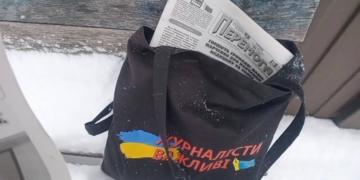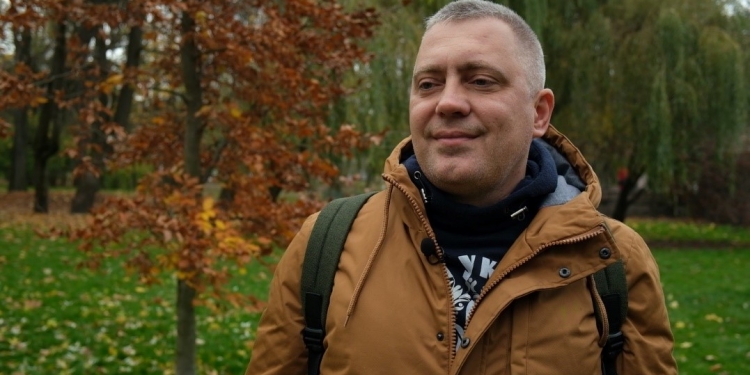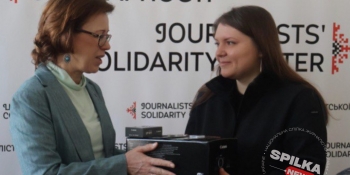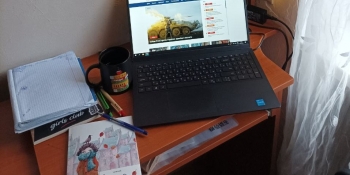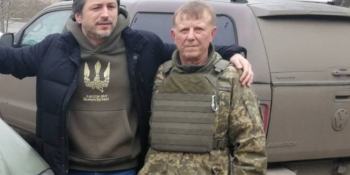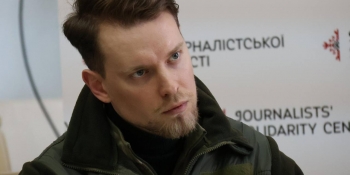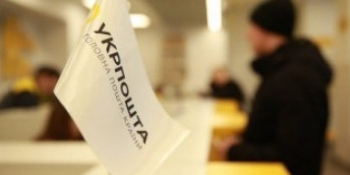39 days in occupation. 9 days in captivity with a plastic bag on the head. Interrogations. Torture. Humiliation.
Kherson journalist Oleh Baturin from the town of Kakhovka experienced all that. But thanks to the unexpected mercy of fortune, the correspondent of the Novyi Den newspaper managed to escape from the enemy captivity.
Since 2002, Oleh Baturin had been an in-house correspondent of the Kherson newspaper Novyi Den. Almost half of the region was under his watchful journalistic eye. In addition, after the annexation of Crimea, he founded a public organization called Yevroprostir [Eurospace]. Its employees conducted journalistic investigations about life in the occupied territories. Could Oleh have known back then that one day he himself would find himself both in occupation and in captivity?
Suddenly, Oleh offered his wife to drive around the town and see what was going on.
Residents of Kakhovka, who decided not to leave the town after the first explosions, quickly lost such an opportunity at all. The town was occupied in a matter of hours, and Oleh had no choice but to wait for the right moment and work in the meantime.
Although in those February days of the war, Kakhovka residents did not think about their lives, they tried to stop the enemy. They took to the street, conducted rallies, wrapped themselves in blue and yellow flags, held posters that read Kherson is Ukraine!, praised the Armed Forces of Ukraine and asked the Russian enemy to leave. Journalist Oleh Baturin was always among the participants of the rallies.
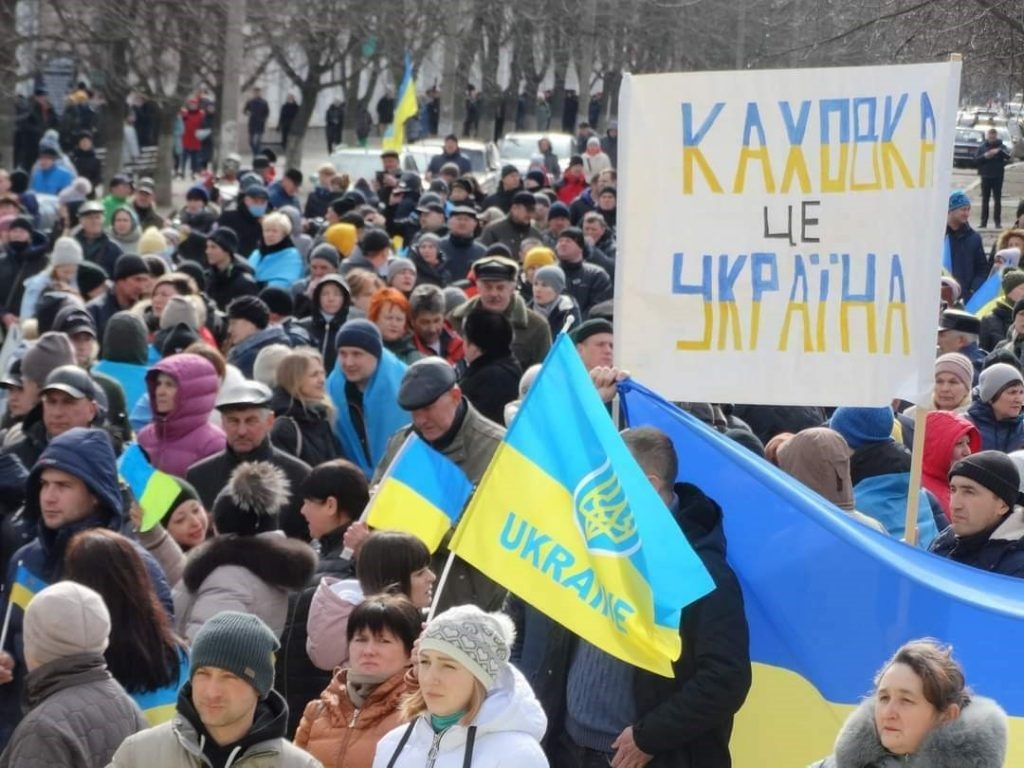
Ukrainians organized peaceful protests, while the enemy were watching and tracking down the most courageous patriots. First on the list of “enemies of the people”, “Nazis” and “Bandera proponents” were veterans of the war in Donbas, local authorities and journalists. According to official data, at the beginning of March, there were more than 400 official kidnapping reports. Oleh himself one day after talking with a friend on the phone was captured by the Russian FSB officers.
Humiliating interrogations, intimidation, and beatings began.
A week passed, but it seemed to be an eternity to Oleh. The man was already mentally saying goodbye to life. In moments of greatest despair, thoughts about the family and the incredible resistance of the compatriots, which could be heard even through the walls of the torture chamber, saved us.
However, slaves should not say anything about the lives of free people. They still won’t understand. Oleh was silent and regretted that he probably would not see the victory of Ukraine. But fate decided otherwise, because nine days later the occupiers released him. And as soon as he left the door of the torture chamber, he immediately began to look for any way to get his wife and son out of Kakhovka. After all, the russian killers could come for him for a second time.
Later, Oleh Baturin and his family were hospitably received in Lviv.
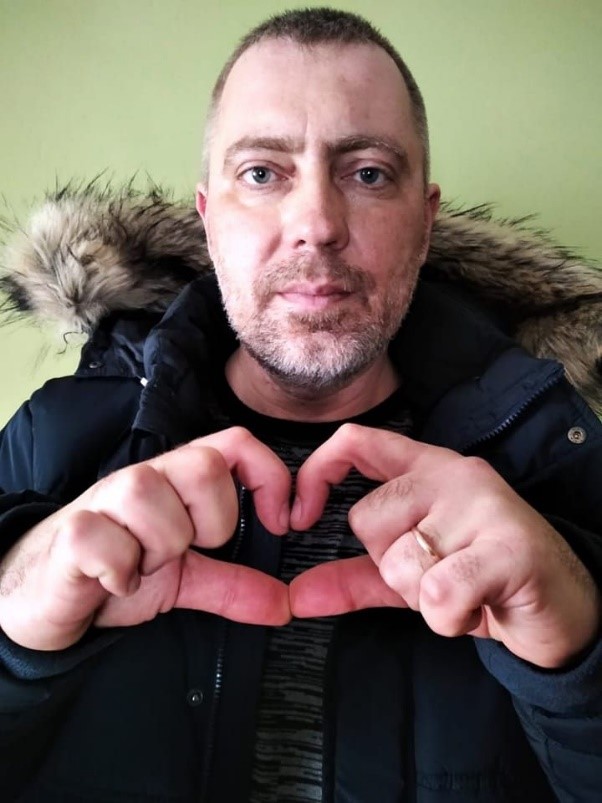
“Since May, I have been working as a journalist at the Center for Journalistic Investigations within the project called Retribution. Ukraine Testifies. This is an international initiative whose goal is to document the crimes of the russian military in order to bring them to justice. It so happened that most of the witnesses, unfortunately, are also victims of these crimes. So, we talk to those people and collect that information. Now it is very important,” Oleh says.
After the news about the liberation of Kherson, Oleh decided to return to his town to tell firsthand about the revival of life in the suffering south of the country.
JOURNALISTS ARE IMPORTANT. Stories of Life and Work in Conditions of War is a series of materials prepared by the team of the National Union of Journalists of Ukraine (NUJU) with the support of the Swedish human rights organization Civil Rights Defenders.





